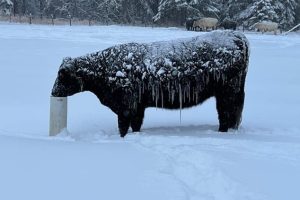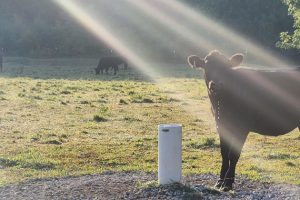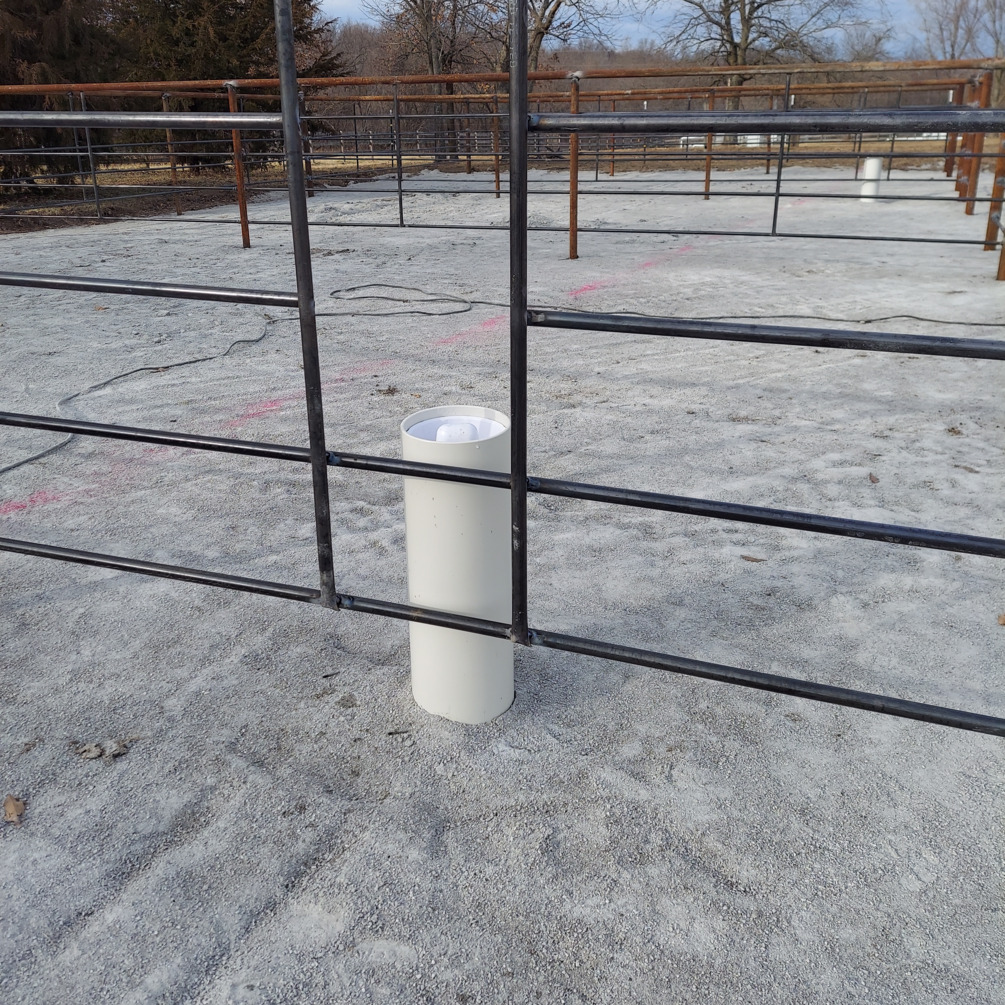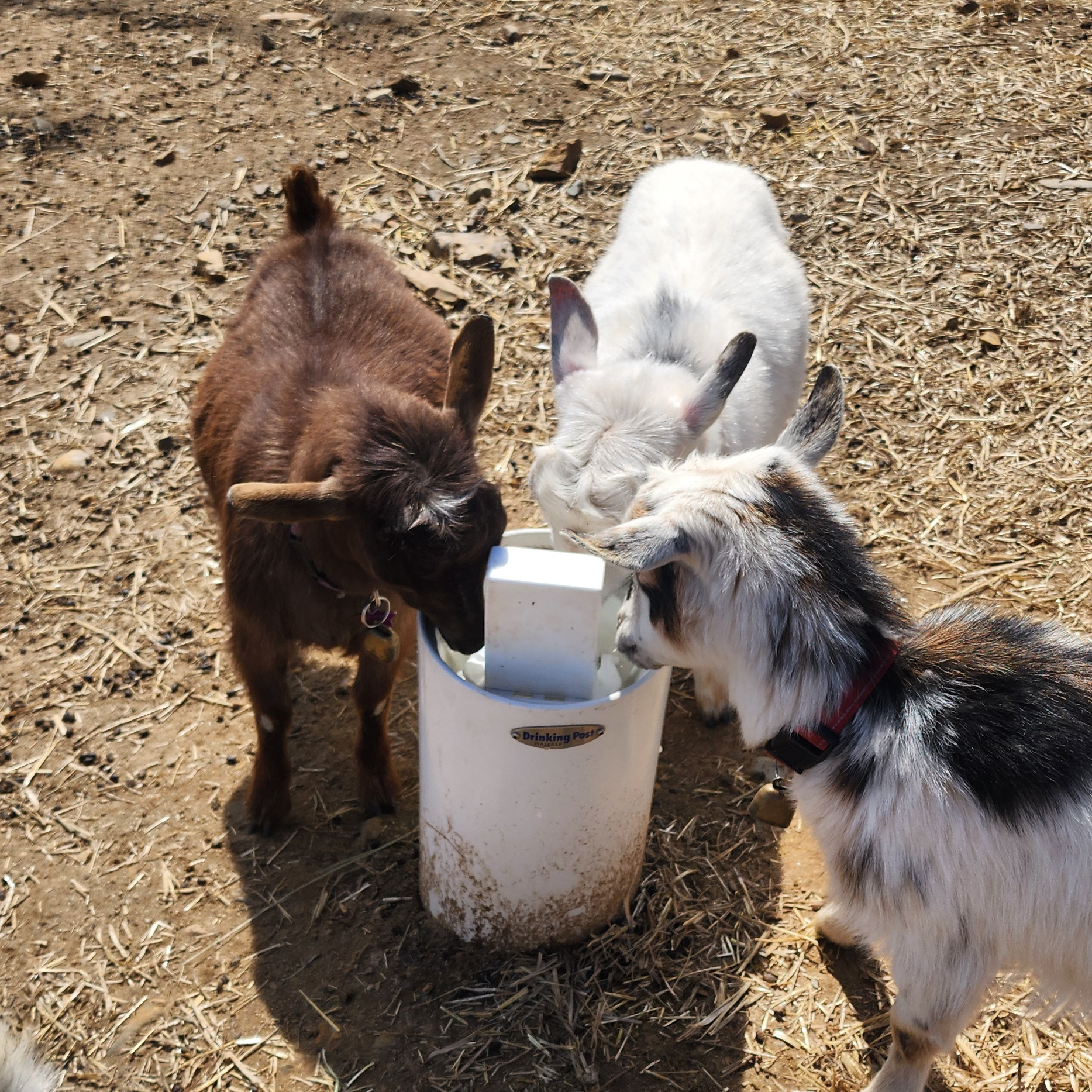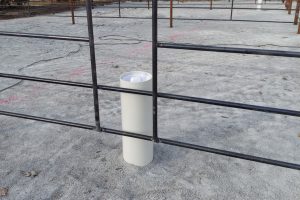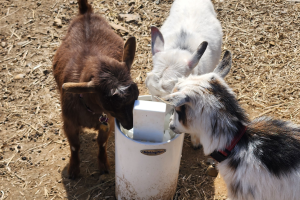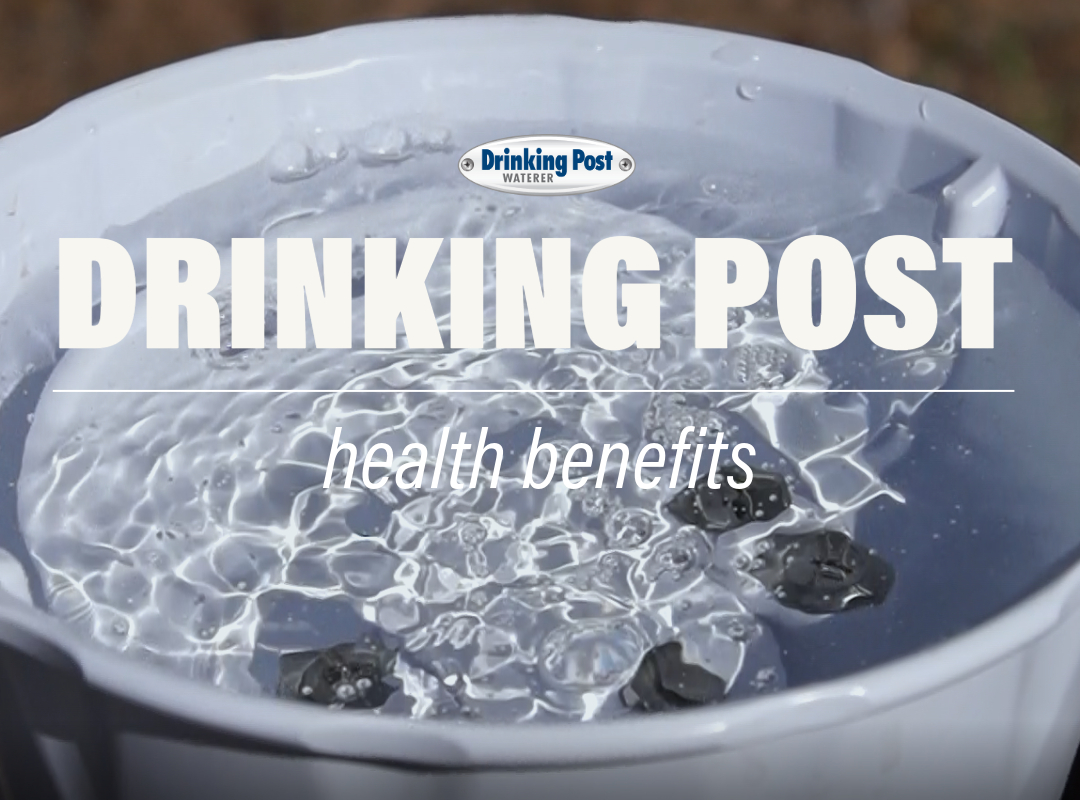

The Gift of Clean Water.
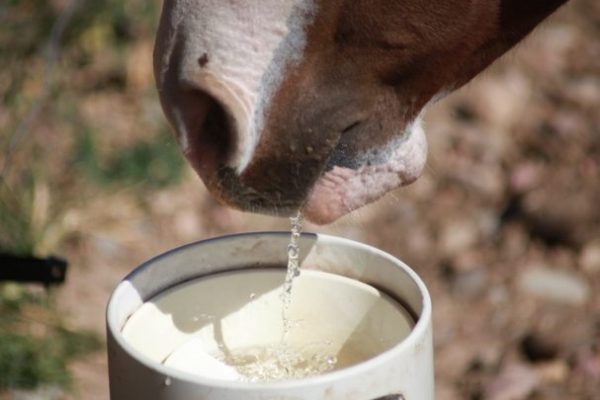
Maximizing water intake year round should be a primary goal in the management of all animals, especially horses and livestock. One of the most crucial elements to maximizing water intake is to ensure your animals have access to fresh, clean water they want to drink!
Water intake affects every part of an animal’s system includingsight, fluid balance, temperature control, exercise tolerance, milk production lubrication of joints, flushing of toxins, saliva, the central nervous system, digestibility of feed, and much more!
The Gift of Clean Water.

Maximizing water intake year round should be a primary goal in the management of all animals, especially horses and livestock. One of the most crucial elements to maximizing water intake is to ensure your animals have access to fresh, clean water they want to drink!
Water intake affects every part of an animal’s system includingsight, fluid balance, temperature control, exercise tolerance, milk production lubrication of joints, flushing of toxins, saliva, the central nervous system, digestibility of feed, and much more!
No Standing Water
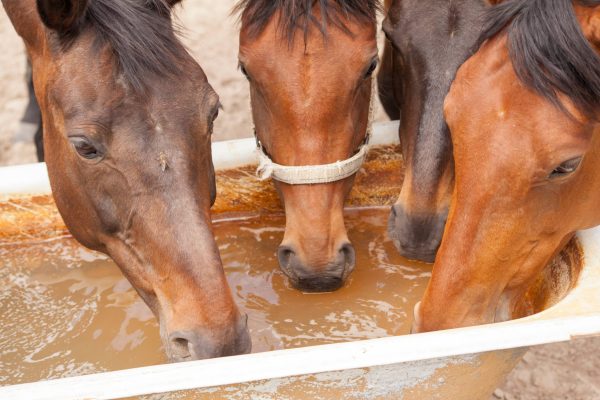
Stagnant water in ponds, buckets, and water tanks get severely contaminated with algae, which takes a lot of maintenance to keep clean. Some algae, specifically blue-green, can be toxic to horses. A good rule of thumb is if a natural water source is not fed with flowing water, it’s not suitable for horses to drink. Stagnant water sources can cause many issues, including moon-blindness, Leptospirosi, and increased possibility of mosquito-borne illnesses (such as West Nile Virus)
The Drinking Post fills with fresh water every time the paddle is pushed. This provides good tasting algae-free water that comes up at the perfect temp all year long (50 F/10 C). Since all the water drains after each use, using the Drinking Post dramatically reduces spread of water-borne illnesses. It also means that contaminants like mosquito eggs won’t make it into your animals’ water, reducing the spread of West Nile virus.
No Standing Water

Stagnant water in ponds, buckets, and water tanks get severely contaminated with algae, which takes a lot of maintenance to keep clean. Some algae, specifically blue-green, can be toxic to horses. A good rule of thumb is if a natural water source is not fed with flowing water, it’s not suitable for horses to drink. Stagnant water sources can cause many issues, including moon-blindness, Leptospirosi, and increased possibility of mosquito-borne illnesses (such as West Nile Virus)
The Drinking Post fills with fresh water every time the paddle is pushed. This provides good tasting algae-free water that comes up at the perfect temp all year long (50 F/10 C). Since all the water drains after each use, using the Drinking Post dramatically reduces spread of water-borne illnesses. It also means that contaminants like mosquito eggs won’t make it into your animals’ water, reducing the spread of West Nile virus.
No Electricity
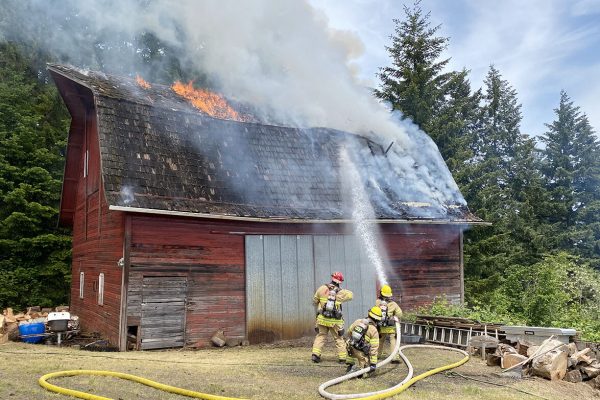
If you are utilizing a bucket, trough, or any type of reservoir with a heater, it is likely vulnerable to horse play. Here’s what Horse Illustrated has to say about horses playing with electric cords on their heated waterers:
“With a floating trough heater, “young” or “mouthy” horses will play with them like bath toys, chewing on them or ultimately flipping them out of the trough and onto the ground. Also, because heat rises, this type of heater does not work well on deeper troughs in extremely cold climates. Ice will still form at the lower depths, keeping the overall temperature colder than ideal. A short in the system could cause the unit to quit working. Worse, it could electrify the water, creating a shocking effect when your horse tries to take a drink….And of course, make sure electrical cords are well out of reach. If a horse chews through an electrical cord, it may be the last thing he ever chews on!” (November 2000 issue of Horse Illustrated)
Drinking Post offers an alternative so you can avoid this potential safety hazard to your beloved animals. The benefits of using a non-electric waterer include:
- No expensive electricity bill
- Power outages will not affect your animals’ automatic waterer
- No risk of electric shock
- No risk of fire (barn fires are common due to electric waterers with faulty wiring, defective electric equipment, or misuse/abuse by your animals.
Barn fires stemming from the use of electricity in automatic waterers are often tragic, but are an unfortunately reality of horse & livestock care. Using a non-electric waterer, like Drinking Post, can prevent the possibility of a tragic barn fire.
“Electric water heating coils can pose a problem if they are not attended because once the water has boiled out the coil will continue to heat the bucket, allowing heat to transfer to adjacent materials. In November of 2000, twenty Standardbreds lost their lives in a fire whose cause was believed to be a portable submersible electric water heater… Before you add heat—for whatever reason—please carefully consider if it’s really necessary.” (source: firesafetyinbarns.com)
No Electricity

If you are utilizing a bucket, trough, or any type of reservoir with a heater, it is likely vulnerable to horse play. Here’s what Horse Illustrated has to say about horses playing with electric cords on their heated waterers:
“With a floating trough heater, “young” or “mouthy” horses will play with them like bath toys, chewing on them or ultimately flipping them out of the trough and onto the ground. Also, because heat rises, this type of heater does not work well on deeper troughs in extremely cold climates. Ice will still form at the lower depths, keeping the overall temperature colder than ideal. A short in the system could cause the unit to quit working. Worse, it could electrify the water, creating a shocking effect when your horse tries to take a drink….And of course, make sure electrical cords are well out of reach. If a horse chews through an electrical cord, it may be the last thing he ever chews on!” (November 2000 issue of Horse Illustrated)
Drinking Post offers an alternative so you can avoid this potential safety hazard to your beloved animals. The benefits of using a non-electric waterer include:
- No expensive electricity bill
- Power outages will not affect your animals’ automatic waterer
- No risk of electric shock
- No risk of fire (barn fires are common due to electric waterers with faulty wiring, defective electric equipment, or misuse/abuse by your animals.
Barn fires stemming from the use of electricity in automatic waterers are often tragic, but are an unfortunately reality of horse & livestock care. Using a non-electric waterer, like Drinking Post, can prevent the possibility of a tragic barn fire.
“Electric water heating coils can pose a problem if they are not attended because once the water has boiled out the coil will continue to heat the bucket, allowing heat to transfer to adjacent materials. In November of 2000, twenty Standardbreds lost their lives in a fire whose cause was believed to be a portable submersible electric water heater… Before you add heat—for whatever reason—please carefully consider if it’s really necessary.” (source: firesafetyinbarns.com)
No Risk of Water-Borne Illnesses
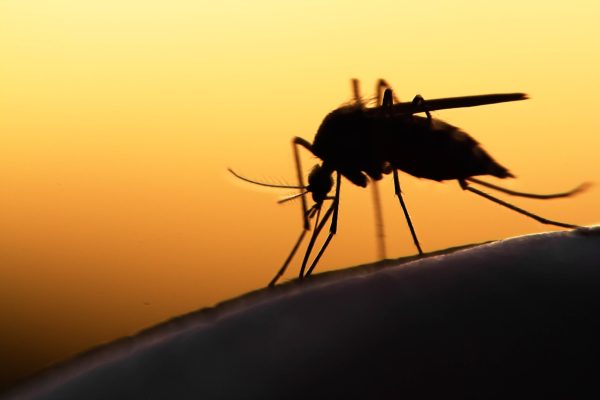
Water-borne illnesses can be tragic and even fatal for your animals! Water-borne illnesses form almost exclusively in standing, stagnant water. Most watering methods, both manual and automatic, have a reservoir of standing water that the animal drinks from. This reservoir is refilled manually or automatically. This standing water is what water-borne illnesses form in. Standing water is also what attracts bugs, especially mosquitos, who carry dangerous diseases such as West Nile Virus. Mortality rates for equines who have WNV are about 30%.
West Nile Virus is incredibly serious for equines and other livestock animals. It’s imperative that you mitigate the risks of WNV for your animals. There is no easy cure for West Nile Virus. Horses that become ill are treated only by supportive measures (fever control, dehydration mitigated with use of IV’s, etc.) It may take several months for some equine to recover, and even after recovery, some will have persistent neurological defects. West Nile virus symptoms include muscle twitching, incoordination, muscle weakness, fever, drowsiness, inability to eat/drink, recumbency, seizures
The easiest way to prevent mosquito-borne illnesses, like West Nile Virus and Eastern/Western Equine Encephalitis, is to prevent mosquitos themselves! One of the most effective methods to deter mosquitoes is to eliminate their breeding grounds, which is standing water sources. Drinking Post has no standing water since it fills and drains with each use. Since there’s no standing water, it greatly reduces amount of bugs and mosquitos swarming around your animals’ water.
No Risk of Water-Borne Illnesses

Water-borne illnesses can be tragic and even fatal for your animals! Water-borne illnesses form almost exclusively in standing, stagnant water. Most watering methods, both manual and automatic, have a reservoir of standing water that the animal drinks from. This reservoir is refilled manually or automatically. This standing water is what water-borne illnesses form in. Standing water is also what attracts bugs, especially mosquitos, who carry dangerous diseases such as West Nile Virus. Mortality rates for equines who have WNV are about 30%.
West Nile Virus is incredibly serious for equines and other livestock animals. It’s imperative that you mitigate the risks of WNV for your animals. There is no easy cure for West Nile Virus. Horses that become ill are treated only by supportive measures (fever control, dehydration mitigated with use of IV’s, etc.) It may take several months for some equine to recover, and even after recovery, some will have persistent neurological defects. West Nile virus symptoms include muscle twitching, incoordination, muscle weakness, fever, drowsiness, inability to eat/drink, recumbency, seizures
The easiest way to prevent mosquito-borne illnesses, like West Nile Virus and Eastern/Western Equine Encephalitis, is to prevent mosquitos themselves! One of the most effective methods to deter mosquitoes is to eliminate their breeding grounds, which is standing water sources. Drinking Post has no standing water since it fills and drains with each use. Since there’s no standing water, it greatly reduces amount of bugs and mosquitos swarming around your animals’ water.
Winter Benefits
Winter watering can be difficult and expensive. The Drinking Post makes winter watering cheap and easy! It stays frost-free all winter long without any electricity! It’s been tested in temps as low as -50 F/-45.6 C!
Summer Benefits
Water intake can double in the summer months for horses and livestock! It’s important to make sure your animals have a reliable water source to keep them hydrated and healthy all summer long!
Installation Info
No electricity, no cement pad, no problem! All you need is a pressurized waterline. Click the button below to learn more about the Drinking Post installation!
Sizing Tool
Identifying the right size waterer for your specific application is a simple, and we can help. Just tell us your needs and your location.

